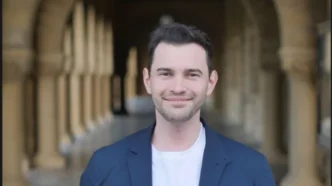Hedra, the AI startup fueling the viral wave of talking baby podcast videos, just raised $32 million in fresh funding led by Andreessen Horowitz. The platform, launched in 2023, is quickly becoming a go-to tool for creators experimenting with character-driven AI storytelling.
With its Character-3 model at the core, Hedra makes it easy to generate lifelike videos featuring expressive AI avatars. Creators have used it to produce everything from talking babies to podcasting dogs—yes, really. One clip, where an animated pup talks about adjusting to a new baby, is gaining serious traction across social platforms.
CEO Michael Lingelbach started Hedra after spotting a gap between tools like Synthesia, which offer presentation-style avatars, and platforms like Runway, known for short video generation. His vision? A space where rich character expression, long-form dialogue, and full creative control could come together. And investors are clearly on board.
Andreessen Horowitz’s Infrastructure fund led the Series A, with existing backers like Index Ventures and Abstract Ventures joining in. Amazon’s Alexa Fund also contributed earlier this year. As part of the new round, a16z partner Matt Bornstein is joining Hedra’s board.
Lingelbach said momentum really took off after launching Character-3 in March 2025, shortly after signing Hedra’s term sheet with a16z. That model became a turning point, driving both user growth and enterprise attention.
Hedra plans to use the new funds to train its next-generation model, offering deeper customization and interactive features. The team is also working on tools that allow AI-generated characters to engage with viewers in real time.
While the current focus is on creators and prosumers, the startup says marketing teams at major companies have also expressed interest in the platform. With Hedra, users can create videos not only using its native model but also integrate tools like Veo 2 and Kling for video, along with image models such as Imagen3, Flux, Ideogram V2, and audio tools like ElevenLabs and Cartesia for cloning or narration.
What sets Hedra apart, according to the company, is its ability to produce more expressive and nuanced characters—an edge over rivals like Captions, Synthesia, HeyGen, and Cheehoo, which cater to slightly different markets from mobile to Hollywood.
Andreessen Horowitz’s Bornstein sees character-driven storytelling as the next frontier in AI video. While today’s models can create stunning visuals or basic movements, what truly connects with audiences are stories—and characters that feel alive.
And that’s exactly where Hedra is making its mark.













